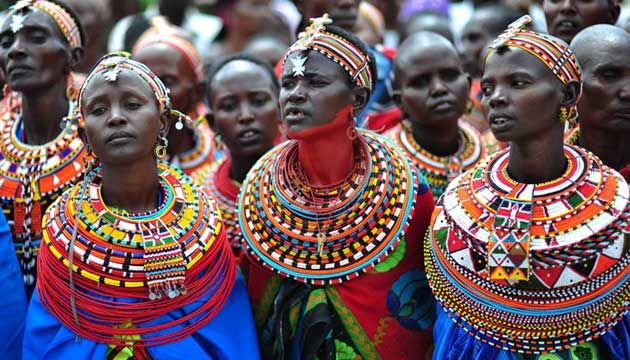Women and Tradition: When Culture Hinders Progress. By Falilat Oreoluwa Dikko

Women and Tradition: When Culture Hinders Progress

Culture is meant to shape societies, provide order, and preserve identity. However, when customs begin to stifle growth, especially for women, they must be questioned. Across the world, from Nigeria to China and the Middle East, traditions have played a role in keeping women in the background, sometimes forcing them to abandon dreams, talents, and ambitions.
For many years, Saudi Arabia upheld a ban on women driving. The belief was deeply rooted in customs that prioritized men as guardians of women’s mobility, reinforcing the idea that a woman’s independence should be limited. Some religious scholars argued that allowing women to drive could lead to Westernization and moral corruption. Women who attempted to defy the law faced imprisonment, public shaming, and even travel restrictions. One of the most notable activists, Loujain al-Hathloul, was arrested multiple times for simply sitting behind a steering wheel.
The restriction did not just limit movement, it was symbolic of broader oppression. A woman’s ability to control her own transportation affects her career, education, and even personal safety. In a world where men could move freely, women had to wait, request permission, and rely on others. This inequality was justified under the guise of protecting women’s dignity, but in reality, it was a method of control. When the ban was finally lifted in 2018, it was hailed as a major victory, yet it took decades of struggle for something as basic as driving to be recognized as a right for women.

China, another country with deeply entrenched traditions, has long viewed women through the lens of Confucian values that prioritize male authority. A traditional saying goes, “A woman must obey her father before marriage, her husband after marriage, and her son in widowhood.” This philosophy shaped generations of gender roles, where a woman’s place was strictly defined by her relationships with men. The preference for male children over female ones has been a longstanding issue. During the one-child policy era, many families, particularly in rural areas, resorted to abandoning, neglecting, or even aborting female fetuses in favour of sons.
The consequences of this practice have been devastating. Today, China faces a severe gender imbalance, with millions more men than women, leading to social problems like forced marriages, human trafficking, and increased pressure on women to marry. Despite China’s rapid modernization, the burden of traditional expectations still weighs heavily on women. Career women are often labeled “leftover women” if they remain unmarried past their late twenties. Even in politics and business, women struggle to break into leadership roles. The cultural mindset that a woman’s primary purpose is to serve her family, rather than pursue individual success, continues to linger.
In Nigeria, particularly among the Yoruba, tradition has been both a blessing and a barrier for women. Yoruba women have historically been powerful traders and community leaders, with figures like Efunsetan Aniwura and Madam Tinubu commanding economic and political influence. However, in domestic and social settings, the expectation of absolute female submission remains strong. A Yoruba proverb states, “Obinrin ki í ṣàgbà ni ilé ọkọ,” meaning “A woman cannot be older in her husband’s house,” reinforcing the belief that no matter her status, intelligence, or wealth, a woman must always be beneath her husband.

Certain widowhood practices in Nigeria further illustrate how culture can be used to subjugate women. In some Yoruba communities, a widow is expected to drink the water used to bathe her deceased husband’s corpse as a test of her innocence. Others force women to shave their heads, sit on the bare floor for weeks, or undergo humiliating purification rites. Meanwhile, widowers face no such trials. These customs, rather than honouring the dead, reinforce gender inequality and expose women to unnecessary suffering.
Marriage itself is often a test of endurance for Yoruba women. An unmarried woman past a certain age is treated like an incomplete puzzle, no matter her achievements. Even when educated and financially independent, a woman is expected to “endure” her husband’s shortcomings, including infidelity and even abuse, because “Ibi tí ọkọ bá tí fi obìnrin sí, ni yóò gbé,” meaning “A woman must remain wherever her husband places her.” Many women remain trapped in unhappy or even dangerous marriages to avoid societal shame.
Beyond marriage, traditional restrictions on leadership roles have kept many capable women from reaching their full potential. Historically, African societies had female rulers and warriors, like Queen Amina of Zazzau, but modern interpretations of culture now suggest that leadership is strictly a male domain. When Ngozi Okonjo-Iweala became the first female Director-General of the World Trade Organization, many Nigerians were quick to dismiss her success as mere luck, rather than recognizing her competence. Even within families, women who express opinions are often told, “You talk too much for a woman,” as though intelligence and assertiveness are exclusive to men.
Yet, despite these barriers, women have consistently shattered ceilings. Funmilayo Ransome-Kuti led women’s protests against colonial oppression. Chimamanda Ngozi Adichie uses literature to challenge gender stereotypes. Folorunso Alakija, who started as a secretary, became one of Africa’s wealthiest women without the inheritance of a husband or father. The late Dora Akunyili redefined leadership by fighting fake drugs, proving that courage and competence know no gender.
In the diaspora, similar battles have been fought. Women like Malala Yousafzai in Pakistan have stood against cultural norms that restrict education. Michelle Obama had to fight against racial and gender stereotypes while serving as First Lady of the United States. Even Oprah Winfrey, despite her wealth and influence, has spoken openly about the challenges of being a Black woman in a male-dominated media industry.
Culture is not inherently bad, but it must evolve. Traditions should be a source of pride, not oppression. As Adichie once said, “Culture does not make people; people make culture.” If a tradition suppresses women’s rights and potential, then it is not a heritage worth preserving. True progress comes when customs are adapted to reflect fairness, equality, and the realities of modern life.
Across the world, from Riyadh to Beijing, from Lagos to London, women continue to push against cultural barriers. Some traditions have begun to change, but many still remain. A woman should not have to fight to drive a car, own property, lead a nation, or make choices about her own life. The real question is: how long will it take before the world stops seeing women’s progress as a threat rather than a necessity?
Falilat Oreoluwa Dikko, author and public affairs analyst writes from Lagos Nigeria 21st February 2025




